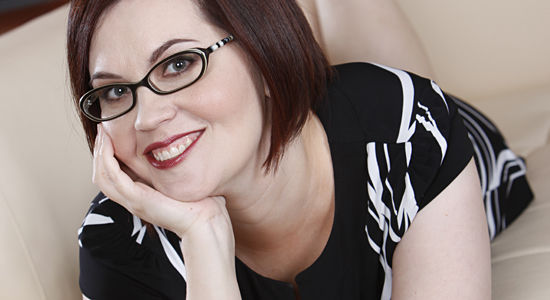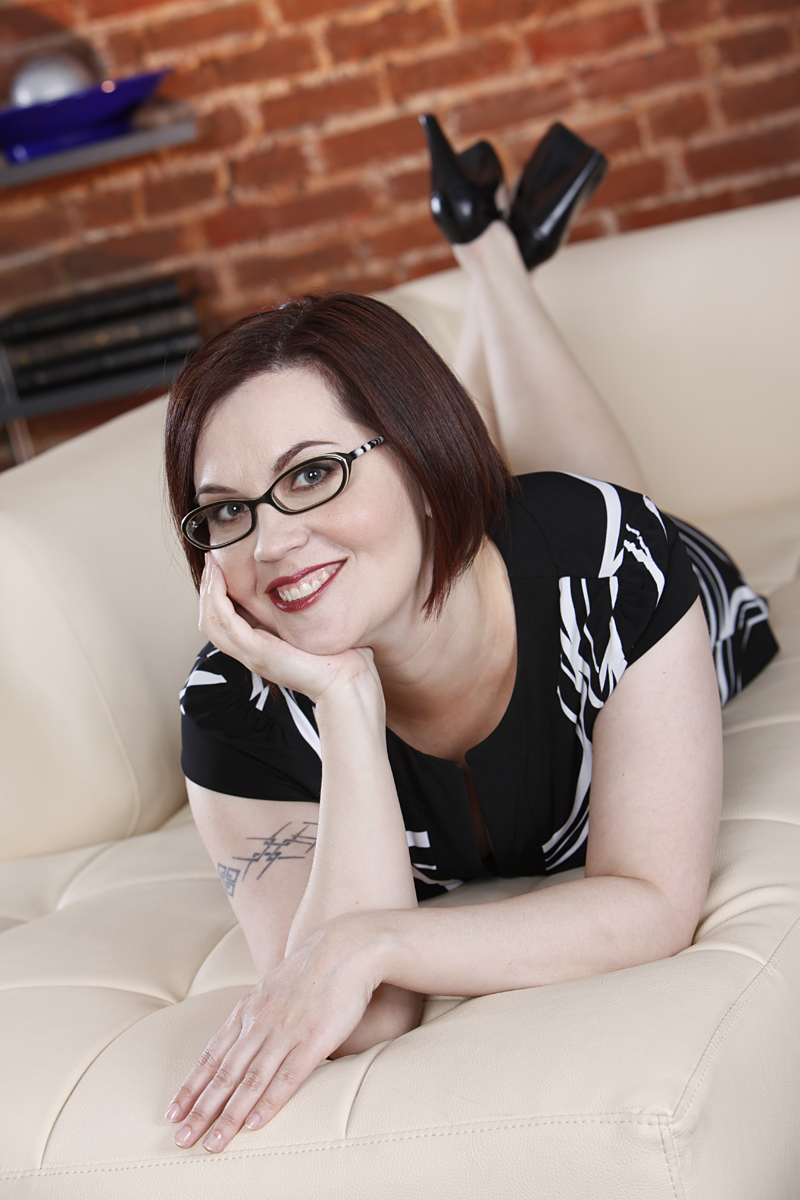Story by Elise Elshire
Photo provided by Tristan Taormino
In the last few weeks, the Willamette Valley has been abuzz about Tristan Taormino, acclaimed feminist pornographer and sex educator. Three weeks before the Modern Sex Conference at Oregon State University (OSU), Taormino’s appearance as keynote speaker was cancelled. OSU administration claimed her involvement in porn was grounds for the change. This action outraged students who had helped organize the conference, and prompted UO professor Jennifer Burns Levin to invite Taormino to speak in Eugene.
Then, after a whirl of controversy, student protest, and fundraising, Taormino was invited back to OSU, where she spoke Tuesday. She visits Eugene the following day for “My Life as a Feminist Pornographer” at 7:30 p.m. in PLC 180. The event is hosted by the UO Center for the Study of Women in Society (CSWS), the Department of Women’s and Gender Studies, the Oregon Humanities Center, Robert D. Clark Honors College, and the UO Women’s Center.
Ethos spoke with Taormino before her trip to the UO about her personal background, sex education, and other titillating tidbits.
Elise Elshire: What does the initial cancellation of your talk at OSU say about society’s feelings surrounding sex?
Tristan Taormino: I think that we already have such a mixed messages around sex, and a great deal of ambivalence around it. Is it good? Is it bad? Should we talk about it? You know, there’s all this shame and judgment, and I think that definitely played into their decision. In several of their comments, including on television, representatives said, ‘She’s a self-described pornographer.’ They kept using that phrase, almost as if to say, ‘I guess she can make porn, but why does she have to be so loud about it? Why does she have to use that word? Why does she have to put it out there in our faces?’ There’s definitely a sense that something I’m doing is very threatening. I think they are especially concerned that I make porn. I make a living in porn. That really distresses them. [Laughs.]
EE: I’m curious about your background and your family. What kind of values did your family have when you grew up?
TT: I was raised by my mom. My parents got divorced before I was two years old, and at the same time my father came out as gay. So my parents split up, and my mom had custody of me, although I saw my dad regularly, and we were very close. I grew up with my mom in a really conservative town on Long Island. In school I got the lame health class sex education that a lot of people have gotten, which is essentially meaningless.
I wouldn’t say that I grew up in an out-of-the-ordinary situation. Both my parents did identify as feminists, and I heard that word early on in my life. I didn’t necessarily come to figure out all what that meant until I went to college. Certainly no one in my high school–I went to public high school–talked about feminism or identified as feminist. So, I was like, ‘My mom identifies as feminist. She doesn’t wear a bra. What’s the deal?’ In your kid head you think, ‘What does that mean?’. So it wasn’t until college, when I took a lot of women’s studies classes and started studying, that I got to put that whole experience of my parents and their values into perspective.
EE: You mentioned how your sex education was typical by U.S. standards, meaning pretty bad. What are some things we can do to improve sex education?
TT: Um, everything. [Laughs.] Sex education in America is really—well, it’s a disaster, quite frankly. The thing is that there’s this model out there, which is that we withhold information and resources from young people. So instead of talking to them in explicit terms and being really honest and really straightforward about sex, we show them diagrams and film strips that are practically meaningless to them.
We don’t give them access to safer sex materials. It’s very rare for a high school, for example, to have free condoms. The theory behind that is, ‘Oh my god, if we give out free condoms, everyone is going to have sex’. So, we withhold this information, we shroud it in a lot of mystery and medical terminology, and it all seems very mysterious, right? So that people grow up not even knowing how their bodies work, and how you can, for example, get an STI. And the rates of STIs among young people and of unwanted pregnancies among young people are so much higher than in other western countries. [It’s] pretty staggering. There was one study recently done, I think in 2009, where they said that one in every four teenage girls will development an STI. That’s insane that we live in America and that’s happening.
But I think it’s happening because there’s all this shame about sexuality. We can’t talk about it, we wont’ talk about it, and we won’t empower young people to actually make informed decisions and give them resources and tools to make decisions around their own sexuality. So I think the whole thing needs a major overhaul. I also think the amount of money spent on abstinence-only education is a crime, and if we could just spend half that on explicit, direct, honest, straightforward sex education, that does not demean kids, that does not protect them, but actually gave them information about the risks, and helps them to reduce those risks, I think we’d see a real shift in the way that people talk about sexuality.
EE: Do you have any advice for college students about relationships and sex?
TT: For most people, college is a pretty critical time in their sexual development. For some, it’s the first time they’ve been away from home. They have a new sense of freedom, and there’s a lot of experimentation that goes on. I think it’s important for people to have a really good sense of what I call sexual self-esteem before they start having sex or get involved with other people.
I think the first step in building your sexual confidence is to connect with yourself. So, I’m putting masturbation on the top of the to-do list for all college students. Take a break from studying and masturbate. I think it’s really important, and I think it’s the first step in figuring out how your body works, what you like, what you don’t like, what feels good, what feels scary, and what it’s all about. I think that the problem is that we don’t have all those questions answered, sometimes we don’t even have one or two of those questions answered, and then we jump into a sexual relationship with someone else. Then you’re ultimately not satisfied, not having the sexual relationship you want to be having, and everything gets a little muddy. I think everyone has to work this stuff out before they bring someone else into the picture.
I think it’s important for people to really let go of this idea that there is this thing called ‘normal sex.’ See, my experience is that hundreds of people ask me questions every day, online, in the classes I teach, in lectures I give, and they write me letters. They are often quite detailed and their ultimate question at the end is, ‘You’ve probably never heard this, right? It’s really weird. I’m really weird. Right?’. And of course the answer is no. First of all, I’ve heard this maybe not today, but definitely yesterday. I feel like people are convinced that everyone around them is having this ‘normal sex’ and the media certainly feeds into that idea of how sex should happen, how sex should look, and how long it should last. It’s all a giant myth. This thing called ‘normal sex’ that everyone is having except you, doesn’t exist.
I know what kind of sex people are having because they tell me. I have a pretty good gage of the sex lives of Americans, and wow, it’s incredibly diverse. So this idea that there’s this script that you’re supposed to follow, and if you divert from that script something is wrong with you, is bullshit. You need to just let go of that idea, and that is the first step to finding your authentic sexual self.
EE: What got you interested in helping out others with their sex lives? Did you start by giving out advice to your friends?
TT: No, not necessarily. I think that the very first time that I taught a sex workshop, it was at a Babeland store in the late [19]90s, in their tiny store on the lower East Side. I prepared my whole lecture, like a good student. I got up in front of people, most of them I didn’t know, and it’s like a light bulb went off. I just thought, ‘This is what I’m supposed to be doing. This is where I’m supposed to be. This is what works for me.’
And things that are very easy for me to talk about in front of big crowds are very difficult for people to talk about even one-on-one. So, there’s just something about the way my brain is wired that I can get up in a room full of people and talk about anal rectal anatomy. And it doesn’t faze me.
EE: What’s it like on the set of a porno? Is there ever any awkwardness or is everything pretty routine?
TT: It’s pretty routine. I mean, I would say that everyone I work with is comfortable for the most part, so that sort of sets everyone else at ease. The thing you have to realize is, this is what people do for a living, and this is what people do every day. So it’s really quite normalized, that there are people in the room who are naked, and there are people in the room who have clothes on. There are people in the room who are having sex, and there are people in the room who are watching. That entire scenario, while I know it sounds strange or titillating or crazy or embarrassing, is totally part of making porn. There’s not a lot that could shock me or make me uncomfortable at this point.
EE: So you’ve seen it all?
TT: Yeah, I think I have.
Categories:
Tristan Taormino, Spicing Up Sex Ed
February 16, 2011

Tristan Taormino, Spicing Up Sex Ed
0
Donate to Ethos
Your donation will support the student journalists of University of Oregon - Ethos. Your contribution will allow us to purchase equipment and cover our annual website hosting costs.








